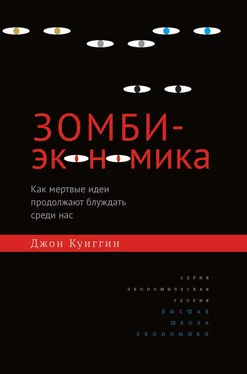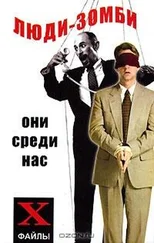Galbraith J. K. The Great Crash, 1929. New York: Penguin, 1969.
Galindo-Rueda F., Vignoles A. The Declining Relative Importance of Ability in Predicting Educational Attainment // Journal of Human Resources. 2005. Vol. 40 (2). P. 335–353.
Garber P. Famous First Bubbles: The Fundamentals of Early Manias. Cambridge, MA: MIT Press, 2001.
Giddens A. The Third Way: The Renewal of Social Democracy. London: Blackwell, 1999.
Giddens A Runaway World: How Globalization Is Reshaping Our Lives (1999 Reith Lecture). London: Routledge, 2002.
Glassman]., Hassett K. Dow 36000. New York: Times Books, 1999.
Glyn A. Capitalism Unleashed: Finance, Globalization, and Welfare. New York: Oxford University Press, 2007.
Goldin C., Marg o R. The Great Compression: The Wage Structure in the United States at Mid-Century // Quarterly Journal of Economics. 1992. Vol. 107 (1). P. 1–34.
Goodin R., Headey В., Muffels R., Dirven H.-J. The Real Worlds of Welfare Capitalism. Cambridge: Cambridge University Press, 1999.
Goolsbee A. Evidence on the High-Income Laffer Curve from Six Decades of Tax Reform (with comments from R. E. Hall, L.F Katz) // Brookings Papers on Economic Activity. 1999. Vol. 2. P. 1–64.
Gordon D. Fat and Mean: The Corporate Squeeze of Working Americans and the Myth of Managerial «Downsizing». New York: Martin Kessler Books and Free Press, 1996.
Gordon R., Dew-Becker L Controversies about the Rise of American Inequality: A Survey. NBER Working Paper No. 13982. Cambridge, MA, 2008.
Gosselin P. High Wire: The Precarious Financial Lives of American Families. New York: Basic Books, 2009.
Gottschalk P. Inequality, Income Growth, and Mobility: The Basic Facts // Journal of Economic Perspectives. 1997. Vol. 11 (2). P. 21–40.
Graham L., Snower D. Hyperbolic Discounting and the Phillips Curve // Journal of Money, Credit and Banking. 2008. Vol. 40 (2–3). P. 427–448.
Grant S., Kline J., Quiggin J. A Matter of Interpretation: Bargaining over Ambiguous Contracts. Paper presented at the 5th Pan-Pacific Conference on Game Theory. 2009. Nov. 20. .
Grant S., Quiggin J. The Risk Premium for Equity: Implications for the Proposed Diversification of the Social Security Fund // American Economic Review. 2002. Vol. 92 (4). P. 1104–1115.
Grant S., Quiggin J. Public Investment and the Risk Premium for Equity// Economica. 2003. Vol. 70 (277). P. 1–18.
Grant S., Quiggin J. Noise Trader Risk and the Welfare Effects of Privatization // Economics Bulletin. 2004. Vol. 5 (9). P. 1–8.
Grant S., Quiggin J. What Does the Equity Premium Mean? // Economists' Voice. 2005. Vol. 2 (4). Article 2.
Grant S., Quiggin J. The Risk Premium for Equity: Implications for Resource Allocation, Welfare, and Policy // Australian Economic Papers. 2006. Vol. 45 (3). P. 253–268.
Grossman S., Stiglitz J. On the Impossibility of Informationally Efficient Markets // American Economic Review. 1980. Vol. 70 (3). P. 393–408.
Gruen D. Reflections on the Global Financial Crisis. Paper presented at address to the Sydney Institute. Sydney, 2009. 16 June.
Gudmundsson M. How Might the Current Financial Crisis Shape Financial Sector Regulation and Structure? Keynote address by Mr. Mar Gudmundsson, Deputy Head of the Monetary and Economic Department of the BIS, at the Financial Technology Congress 2008. Boston, 2008. 23 September, .
Hacker]. Great Risk Shift: The Assault on American Jobs, Families, Health Care, and Retirement, and How You Can Fight Back. New York: Oxford University Press, 2006.
Hall R. Notes on the Current State of Empirical Macroeconomics. Stanford University, 1976, mimeo.
Hansen L., Sargent T. Robust Control and Model Uncertainty // American Economic Review. 2001. Vol. 91 (2). P. 60–66.
Harcourt W. Speech to the House of Commons on the Labourers' Allotments Bill (11 August). 1887. (accessed 12 July, 2010).
Harrod R. F. The Trade Cycle: An Essay. (Reprints of Economic Classics). New York: A. M. Kelley 1936.
Haskins R., Sawhill I. Creating an Opportunity Society. Washington, DC: Brookings Institution Press, 2009.
Hayek F. A. Monetary Theory and the Trade Cycle. New York: Augustus M. Kelley, 1966.
Hazeldine Т., Quiggin J. No More Free Beer Tomorrow? Economic Policy and Outcomes in Australia and New Zealand Since 1984 // Australian Journal of Political Science. 2006. Vol. 41 (2). P. 145–159.
Headey В., Muffels R. Up and Down: The Rich, the Poor, and Income Mobility // Institute of Public Affairs Review: Quarterly Review of Politics and Public Affairs. 1999. December. P. 3–6.
Helleiner E. States and the Reemergence of Global Finance: From Bretton Woods to the 1990s. Ithaca: Cornell University Press, 1996.
Heller W. New Dimensions of Political Economy. New York: WW Norton, 1966.
Hicks J. R. Mr. Keynes and the 'Classics': A Suggested Interpretation // Econometrica. 1937. Vol. 5 (2). P. 147–159.
Himmelstein D., Thorne D., Warren E., Woolhandler S. Medical Bankruptcy in the United States, 2007: Results of a National Study // American Journal of Medicine. 2009. Vol. 122 (8). P. 741–746.
Holt Ch., Modigliani F., Muth J., Simon H. Planning Production, Inventories, and Work Force (Prentice-Hall International Series on Management). Englewood Cliffs, NJ: Prentice-Hall, 1960.
House of Commons. Paper No. 12. Financial Statement and Budget Report 1995–1996. HMSO, 1994. (accessed 12 February, 2010).
Howard J. Interview with // Australian Financial Review. 2004. 22 September. P. 1.
Judt T. Postwar: A History of Europe since 1945. New York: Penguin, 2005.
Kahneman D., Tversky A. Prospect Theory: An Analysis of Decision under Risk// Econometrica. 1979. Vol. 47 (2). P. 263–291.
Kay J. The Truth about Markets: Why Some Nations Are Rich But Most Remain Poor. New York: Penguin, 2004.
Kay J., Thompson D. Privatization: A Policy in Search of a Rationale // Economic Journal. 1986. Vol. 96 (381). P. 18–32.
Kennedy J. F. Remarks in Heber Springs, Arkansas, at the Dedication of Greers Ferry Dam. 1963. 3 October. (accessed 12 February, 2010).
Keynes J. M. The General Theory of Employment, Interest, and Money. New Delhi, India: Atlantic Publishers, 1936; Google Book edition, 2008.
Keynes J. M. The General Theory of Employment // Quarterly Journal of Economics. 1937. Vol. 51 (2). P. 209–223.
Keynes J. M. How to Pay for the War: A Radical Plan for the Chancellor of the Exchequer. Toronto: Macmillan Canada, 1940.
Kindleberger Ch. Manias, Panics, and Crashes: A History of Financial Crises. New York: Wiley, 2000.
Klein J. Malefactors of Great Wealth. 2009. (accessed 15 June, 2009).
Kogan R. Will the Tax Cuts Ultimately Pay for Themselves? Center on Budget and Policy Priorities. 2003. (accessed 20 September, 2009).
Krasnolutska D., Martens J. Ukraine Gets $16.5 Billion Loan from IMF; Hungary Next in Line. 2008. 26 October. (accessed 20 September, 2009).
Krugman P. The Spiral of Inequality // Mother Jones. 1996. November/December. .
Krugman P. Baby-sitting the Economy// Slate. 1998. (accessed 2 February, 2010).
Krugman P. Why Americans Hate Single-Payer Insurance. 2009a. (accessed July 12, 2010).
Krugman P. The Conscience of a Liberal. New York: W. W. Norton, 2009b.
Krugman P. How Did Economists Get It So Wrong? // New York Times. 2009c. 2 September.
Читать дальше
Конец ознакомительного отрывка
Купить книгу











